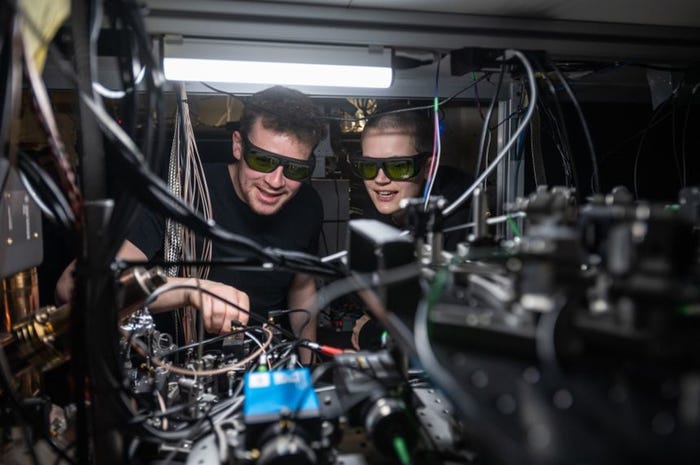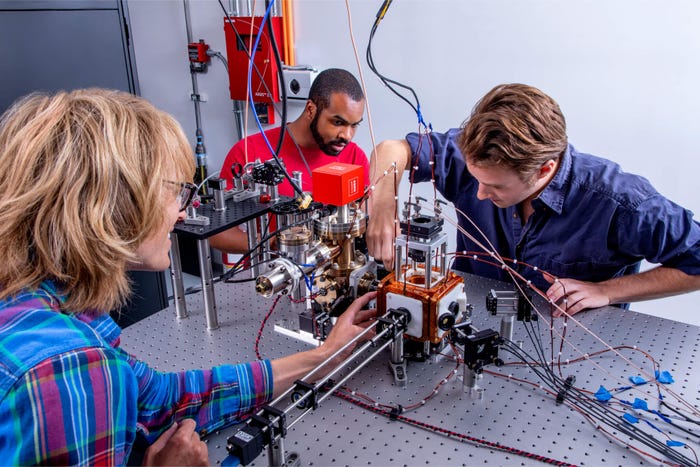
Connects decision-makers and solutions creators to what's next in quantum computing
Quantum Protocol Protects E-Commerce TransactionsQuantum Protocol Protects E-Commerce Transactions
Quantum digital signature system demonstrates fast, secure payments and contract exchange

Chinese researchers have demonstrated a multi-user online trade using a quantum-enabled e-commerce protocol for the first time.
E-commerce is a type of high-frequency online trade that takes place via the exchange of messages over a long distance. It requires protocols that guarantee integrity, authentication and “nonrepudiation,” which means agreeing to adhere to an obligation.
Like other secure transactions that are currently protected by classical encryption algorithms, the security of e-commerce trades is under threat from near-future quantum computers that could decrypt them, and are already at risk from store now, decrypt later hacks.
Quantum encryption, which uses the property of entanglement to securely distribute unhackable quantum states among multiple parties, can help defend against this. However, current algorithms cannot be used for e-commerce as they cannot prevent senders from denying offers they have already made – nonrepudiation.
The researchers, from Nanjing University and Renmin University of China, developed an e-commerce protocol based on a new quantum digital signature (QDS).
The QDS creates the authentication signatures a transaction requires using strings of interconnected bits that are distributed between multiple remote parties. This ensures transaction integrity, authenticity and non-repudiation.
The team demonstrated a five-user quantum network using the protocol and showed it can ensure that contract signing and payments are executed fast and accurately, eliminating the need for a trusted third party to be identified in advance.
It was also fast, achieving a signature rate of 0.82 times per second, compared with other quantum methodologies which demonstrated a significant decline in performance when compared with classical encryption.
“Our work contributes to the further development of e-commerce in the quantum era by providing a practical and efficient solution with enhanced security,” said Renmin University of China associate professor Yin Hualei.
The study was published in the journal Science Advances.
Read more about:
AsiaAbout the Author
You May Also Like






